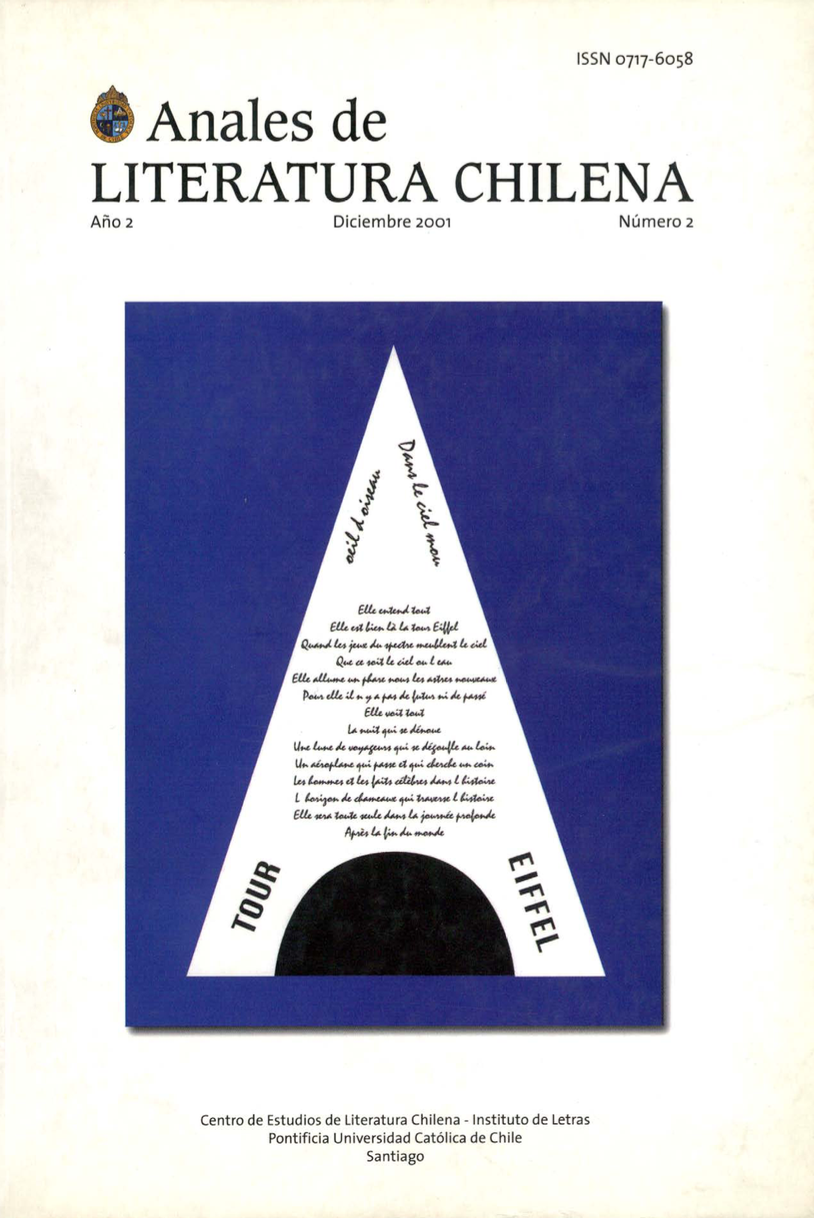Jaime Quezada: Ways of escape towards an open identity
Abstract
In his book Las palabras del fabulador (1968), the Chilean poet Jaime Quezada follows the path of the poetic speaker's subjectivity which aims to break through the boundaries created by culture and, in so doing, define himself. To this purpose, he draws numerous differences between two age groups: pubescent children, his poeticized object, and adults, the target model for establishing a critical contrast. However, this challenge to the cultural model creates in the speaker a feeling of guilt which manifests itself in the representation of the fossilized image of his father. This image reemerges again and again either out of the earth or out of time. The tension between transgression and punishment is actualized in the writing of the poetic fable, so that culture is criticized using of one of its most powerful resources: language.
Downloads
Published
How to Cite
Issue
Section
License

This work is licensed under a Creative Commons Attribution-NoDerivatives 4.0 International License.


